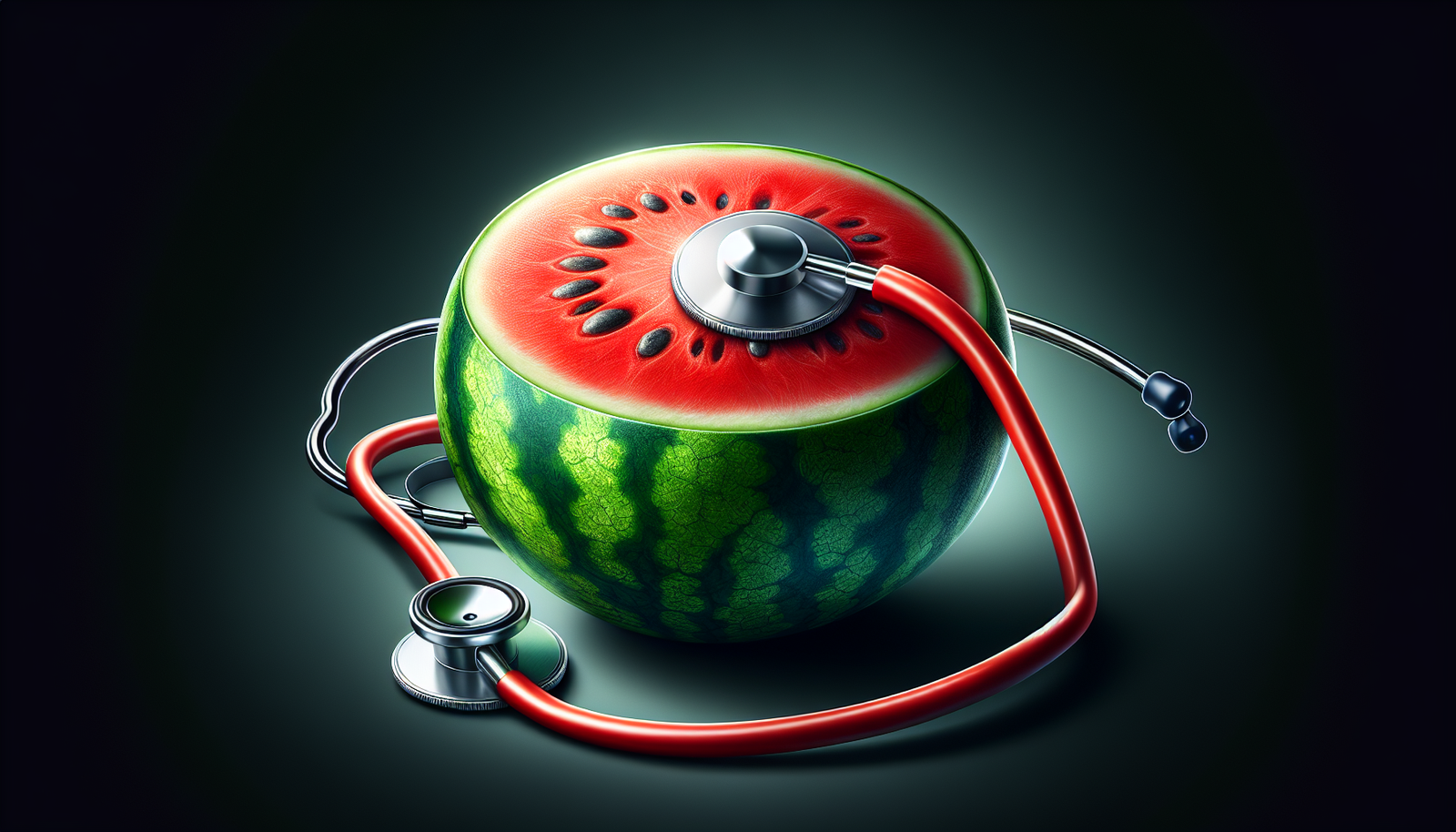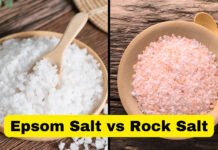Is watermelon good for kidney health? The simple answer is that it can be both beneficial and detrimental, depending on your kidney condition. With its high water content, watermelon might aid in kidney function, but its potassium levels also require consideration, especially for those with certain kidney diseases. This article will provide insight into tailoring watermelon consumption to support kidney health without risking potential complications.
Key Takeaways
Watermelon has health benefits like supporting kidney function and hydrating the body, but it’s high in potassium which can be harmful for people with kidney issues like CKD.
AdvertisementWhile watermelon is often good for preventing kidney stones due to its high water content and diuretic properties, it should be eaten in moderation to avoid potassium overload.
Working with a renal dietitian and practicing portion control are key for incorporating watermelon into a kidney-friendly diet safely, especially for those with kidney conditions.
The Role of Watermelon in Kidney Health

Watermelon, a delicious and hydrating fruit, also plays a supportive role in maintaining our kidney health. Its abundant water content alongside potassium aids the body by:
Balancing urine acidity
Promoting hydration
Enhancing urine production
Assisting kidney function in a gentle manner
This makes for an appealing combination for fostering healthy kidneys.
It’s crucial to consider that when it comes to kidney concerns, each individual’s situation is unique. Particularly for those suffering from specific kidney diseases, watermelon may not always be advisable. We intend to delve into how this refreshing treat interacts with conditions such as chronic kidney disease and kidney stones along with its place within the guidelines of a renal diet.
Watermelon and Chronic Kidney Disease
When it comes to chronic kidney disease (CKD), the plot thickens. While potassium in watermelon is typically seen as an asset, for those wrestling with CKD, it can turn into a foe due to their compromised ability to maintain proper potassium levels. This mismanagement of potassium by the kidneys could set off a domino effect of health complications. It’s worth noting that such renal challenges affect about 14% of Americans, emphasizing the importance of adhering to a diet that supports kidney health.
Is watermelon then appropriate for all individuals? Those with impaired kidney function must tread lightly when consuming this fruit. The goal lies in securing just enough potassium without crossing into dangerous territory—a nuanced negotiation between harnessing its nutritional virtues and sidestepping potential dangers associated with high intake. Such vigilance becomes even more crucial during advanced stages of renal ailments like chronic kidney disease or end-stage renal disease where dietary decisions carry significant weight.
Watermelon and Kidney Stones

Shifting to a more positive aspect, watermelon may play a significant role in helping to prevent kidney stones. Its low oxalate content sets the stage for a reduced risk of these painful pebbles. The potassium in our star fruit choreographs a dance that increases urine pH and decreases urinary calcium levels—both essential moves in the ballet of kidney stone prevention. Plus, the diuretic properties of watermelon ensure the stage is set for managing excess fluids and maintaining a spot-on urine pH.
However, before we wholeheartedly embrace it, we must remember the importance of moderation. Even the best fruits, when consumed in excess, can lead to high potassium levels, a no-go for many people with kidney disease. Therefore, while we add watermelon to the cast of kidney stone preventers, let’s ensure it doesn’t overshadow the entire act.
Watermelon and Renal Diet Basics
In the realm of a renal diet, watermelon plays an assisting role due to its significant levels of water and potassium, which can aid in combating fluid retention and inflammation common in kidney issues. It’s crucial for those with kidney problems, particularly dialysis patients facing fluid limits, to account for the high water content of watermelon as part of their permitted daily liquid consumption. Keeping the urinary tract clear is essential for preventing renal diseases, and given that 92% of this fruit is made up of water, its diuretic effects are greatly beneficial.
Indulging in refreshing slices or sips of watermelon juice must be done thoughtfully within the confines of a balanced renal diet plan. Picture it as an occasional soloist that shines yet remains considerate towards the broader dietary ensemble required for maintaining healthy kidneys. The essence lies in enjoying watemelon with careful attention paid to how it integrates into one’s overall strategy aimed at managing kidney health while adhering to any specified dietary constraints regarding potassium intake.
The Importance of Potassium Balance in Kidney Patients
Maintaining a balanced level of potassium is critical for kidney health, as this mineral plays an essential role in the seamless operation of nerves and muscles, including those integral to cardiac function. Yet when kidneys begin to falter and struggle with regulating potassium levels, it can result in hyperkalemia—a condition that often arises during later stages of chronic kidney disease where there’s discordance instead of harmony.
As individuals battle ongoing ailments such as heart failure, chronic kidney conditions, or type 1 diabetes, they face an increased risk associated with elevated potassium intake. This excess could potentially heighten blood pressure issues and exacerbate renal difficulties. Thus careful monitoring becomes crucial. Managing the interplay between sodium and potassium consumption is key for decelerating the progression of chronic kidney disorders. In this dietary symphony aimed at protecting renal functions, watermelon may emerge as a fitting encore if enjoyed in appropriate portions within a diet designed to be friendly towards the kidneys.
High Potassium Dangers
For individuals suffering from kidney disease, the perils of excessive potassium intake are quite severe. Beginning with mild symptoms such as a sensation of muscle weakness or tingling, hyperkalemia can escalate to serious complications including:
erratic heartbeats
difficulty breathing
chest discomfort
life-threatening cardiac arrhythmias
These acute manifestations of the condition demand urgent medical intervention.
Typically, this dangerous elevation in potassium levels is triggered by diets that contain high amounts of the mineral or by particular drugs that interfere with the kidneys’ capacity to remove it. With deteriorating kidney function comes a reduced ability to filter out potassium, heightening the risk for those already dealing with compromised renal performance.
Low Potassium Foods and Alternatives

Navigating the nutritional needs of kidney patients requires careful selection of foods with appropriate potassium content. Watermelon stands out as a fruit that contains less potassium than many other fruits and melons, fitting into a kidney-friendly diet in much the same way an instrument would complement an orchestra—important to the overall piece but not overwhelming it. As opposed to various fruits and vegetables that are high in potassium, watermelon offers gentler notes for those maintaining low-potassium diets.
The dietary strategy goes beyond focusing on individual food items—it’s about how they work together in concert. Pairing watermelon with other foods low in potassium, such as small servings of certain vegetables and whole grains, is crucial for achieving a harmoniously balanced diet. This strategic combination of nutrients plays each part like a well-tuned instrument designed to promote optimal kidney health through its symphonic nutritional values.
Watermelon’s Nutritional Profile and Kidney Benefits

Turning our attention to the nutritional composition of watermelon, this melon shines with an array of vitamins such as vitamin C and A. It strikes a notable presence in terms of antioxidants too, particularly lycopene. Beyond its headlining acts, watermelon contributes additional dietary fiber that harmonizes the workings of the digestive tract. With vitamin C acting as a defense against inflammation and oxidative harm to the kidneys, alongside vitamin A which fine-tunes overall system performance, these nutrients from watermelon compose an intricate symphony conducive to renal function.
Given its high-water content—at about 90%—watermelon ensures that hydration is at optimal levels within the body. This is crucial for preserving robust kidney health and promoting toxin removal. This abundance of natural fluid assists in keeping kidney operations on beat so that bodily functions remain synchronized and melodious.
Vitamin C and Antioxidant Properties
Vitamin C in watermelon plays a crucial role as an antioxidant, safeguarding kidney health by minimizing oxidative damage. In this nutritious ensemble, beta carotene and lycopene also take up key roles, diligently working to alleviate the oxidative stress on the kidneys by disarming free radicals. This is akin to having an internal protective squad that prevents potential harm which might disrupt healthy kidney function. By adding these nutrients to your daily intake, you’re potentially fostering better functioning of your kidneys.
Not just a fleeting benefit, but a sustained one. Consuming watermelon along with its antioxidants has ongoing implications for managing kidney health. Specifically, they tackle inflammation and curb oxidative stress—two significant contributors to the advancement of kidney disease—ensuring their impact isn’t merely temporary but instead supports enduring wellbeing of the kidneys.
Other Health Benefits
Watermelon not only plays a vital role in maintaining kidney health, but its vitamin C composition also offers a defense against various diseases such as cancer by lowering the likelihood of damage to cellular DNA.
Watermelon’s significance extends to supporting digestive health—the combination of high water content and fiber aids in consistent bowel movements, keeping the digestive rhythm on track.
Real-life Cases: Watermelon Overconsumption and Kidney Complications
Exploring practical scenarios reveals that overindulgence in watermelon might lead to issues with kidney health. Stories from the realm of renal care include examples where this delightful fruit unexpectedly contributed to serious concerns like intense hyperkalemia and could trigger arrhythmias, especially among those already suffering from kidney ailments.
Case 1: Hyperkalemia in a Diabetic Patient
In a distressing account, an individual suffering from diabetes and advanced chronic kidney disease experienced a sharp increase in hyperkalemia due to overindulging in watermelon. The patient’s situation became critical as their normal potassium consumption was significantly increased by the surplus of watermelon, pushing their potassium levels into dangerous territory.
The worrisome symptoms of hyperkalemia began to recede only when the patient cut down on eating watermelon, demonstrating a clear connection between the high intake of this fruit and the rise in potassium levels.
Case 2: Arrhythmia Triggered by Watermelon Juice
A man experienced an arrhythmia due to consuming a significant amount of watermelon juice repeatedly, believing it was beneficial for his kidneys. This excessive intake led to elevated potassium levels in his bloodstream, which resulted in the irregular heartbeat and underscored the importance of dietary balance.
To stabilize his heart rate and regulate his potassium levels, he underwent treatment that included medications along with adopting dietary restrictions focused on limiting foods rich in potassium such as watermelon. This incident emphasizes the need for kidney patients to maintain awareness about their diet and be cautious about overindulging even in seemingly harmless beverages like orange juice.
Tips for Incorporating Watermelon into a Kidney-Friendly Diet
If you’re looking to combine the pleasure of eating watermelon with maintaining kidney health, it’s important to consider several valuable pieces of advice. To include watermelon in a diet that is beneficial for your kidneys, one should seek guidance from a renal dietitian and carefully monitor serving sizes to regulate both potassium levels and fluid consumption.
Consult with a Renal Dietitian
Consulting with a renal dietitian is the fundamental step in adopting a kidney-friendly diet. This professional has the expertise to design a meal plan customized for your individual health requirements, considering elements such as nutritional needs, lab results, and medication regimen. Their role is crucial in helping patients manage their intake of high-potassium foods effectively through strategic meal planning and portion sizes.
Following kidney transplantation, dietary guidance from these specialists becomes even more essential to maintain the newly acquired organ’s compatibility with one’s body. Renal dietitians provide personalized recommendations on how best to include foods like watermelon into your regime while being mindful of any specific dietary restrictions so that it enhances rather than hampers health outcomes.
Portion Control and Moderation
In discussing watermelon and kidney health, the focus is not on consuming large quantities, but rather on modest, regulated portions—particularly important for individuals managing kidney issues due to the fruit’s high water content. To remain within safe consumption guidelines and support dietary recommendations tailored for those with kidney conditions, it is best to limit oneself to a 1 cup serving of watermelon. This amount helps maintain a balance between potassium levels and fluid intake. Indulging in a standard wedge could surpass this recommendation, hence adjusting portion size down to something smaller is advisable.
When considering servings of watermelon, one should think of it as fine tuning an instrument—it’s crucial for hitting the correct notes. For people undergoing dialysis treatment where excess potassium and fluids can cause complications in their condition, careful measurement is key. Adhering strictly to that 1 cup guideline allows individuals not only to savor the sweet taste of this juicy melon but also contributes positively toward maintaining sound kidney health by keeping its role proportionate within their diet.
Summary
In the final act of our watermelon saga, we find that this luscious fruit can be both a friend and a foe to our kidneys. It’s essential to maintain a balance—savoring the health benefits while keeping an eye on potassium and fluid intake. Remember, the key is to enjoy watermelon in moderation, listen to the advice of healthcare professionals, and ensure that this summertime favorite remains a harmonious part of your kidney-friendly diet. With the right measures, watermelon can continue to be the sweet note in your healthy lifestyle.
Frequently Asked Questions
Can eating watermelon improve kidney function?
Indeed, consuming watermelon has the potential to enhance kidney function because it supplies hydration and serves as a natural diuretic. This helps in managing urine acidity while avoiding any undue pressure on the kidneys.
Feel free to indulge in some watermelon for its benefits!
Is watermelon safe for people with kidney disease?
Individuals suffering from kidney disease should exercise caution with watermelon consumption owing to its significant potassium levels, as this could result in potential health issues. It is advised that they speak with their healthcare provider before including it in their diet.
How does watermelon help prevent kidney stones?
Consuming watermelon aids in kidney stone prevention due to its capacity to lower urinary calcium, raise urine pH levels, and serve as a diuretic, which helps cleanse the urinary tract.
Incorporating watermelon into your diet is an excellent strategy for supporting the prevention of kidney stones!
How much watermelon is safe to consume for someone on a kidney-friendly diet?
If you are on a kidney-friendly diet or undergoing dialysis, it is crucial to keep your potassium and fluid intake in check. To do this safely, limit your consumption of watermelon to no more than 1 cup serving. This quantity ensures that you can enjoy the fruit without adverse effects on your health.
Why is it important to consult a renal dietitian when including watermelon in a diet for kidney health?
Consulting a renal dietitian when including watermelon in a kidney diet is important because they can offer personalized guidance based on individual health conditions, dietary restrictions, and the need to manage potassium levels through proper meal planning and portion sizes.
This ensures the safest and most beneficial approach for kidney health.
















